Azeem Rafiq: 'English cricket is institutionally racist'
- Published
- comments
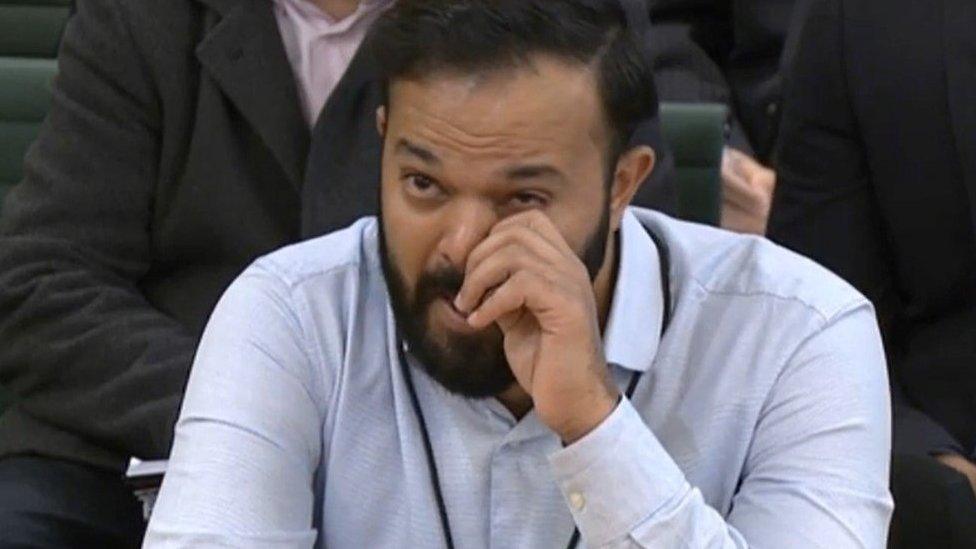
Azeem Rafiq (pictured) was in tears during his meeting with MPs
Azeem Rafiq has told a meeting of MPs that English cricket is "institutionally" racist.
The former Yorkshire cricket player told a Digital, Culture, Media and Sport select committee that racist language was "constantly" used during his time at the club.
In an emotional statement, Rafiq said he'd lost his career to racism and that the issues he faced at Yorkshire are "without a shadow of a doubt" widespread in British cricket.
The 30-year-old was giving evidence to MPs after an investigation by Yorkshire County Cricket Club (YCCC) found that he was the "victim of racial harassment and bullying", but the club said no disciplinary action would be taken.
Since the report came out, most of the YCCC board have resigned.
Who is Azeem Rafiq and what happened to him?

Azeem Rafiq is a former England U-19 and Yorkshire cricket captain. He played for Yorkshire County Cricket Club from 2008-2014 then 2016-2018.
Last year, Rafiq told ESPN "institutional racism" at the club affected his mental health.
The player said he was in pain every day from the racist behaviour.
He also said when he reported the racism it was "ignored" by the club.
Racism can take many forms.
Sometimes racism can be seen through verbal or even physical abuse towards someone because they come from a certain ethnic or cultural background.
Other elements of racism are harder to see but do still happen. For example schools or workplaces operating in a way that discriminates against people, including children, because of their race.
The way a whole sport, workplace or section of society is set up can have the effect that people from certain backgrounds are at a disadvantage or treated differently and this is what is described as systemic, structural or institutional racism.
How was it investigated?
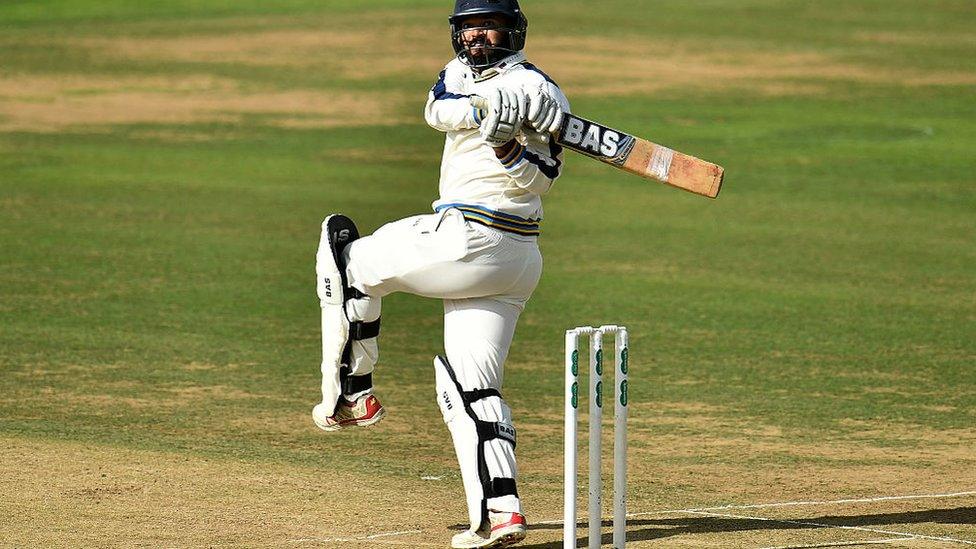
Azeem Rafiq was at Yorkshire County Cricket Club from 2008 to 2014 then 2016 to 2018.
An independent report was commissioned by Yorkshire County Cricket Club in August 2020.
Azeem Rafiq made 43 allegations of racism and the panel confirmed seven of the allegations.
The report agreed that Rafiq had been a victim of "racial harassment and bullying", but the panel said it was unable to decide whether or not there was institutional racism.
Not everything in the report was released but sports broadcasters ESPN claim they have seen parts which were removed, including a senior player that plays for the club admitting using a racist term about Rafiq's Pakistani heritage.
But the Yorkshire County Cricket Club report concluded it was "friendly and good-natured banter," and no-one lost their job.
This led to a lot of criticism and anger. YCCC were stripped of the right to host England games and members of the board who oversaw the investigation had to resign.
Kit supplier Nike, plus several of Yorkshire's sponsors either ended partnerships or said they would not continue deals.
What did Rafiq say to MPs?
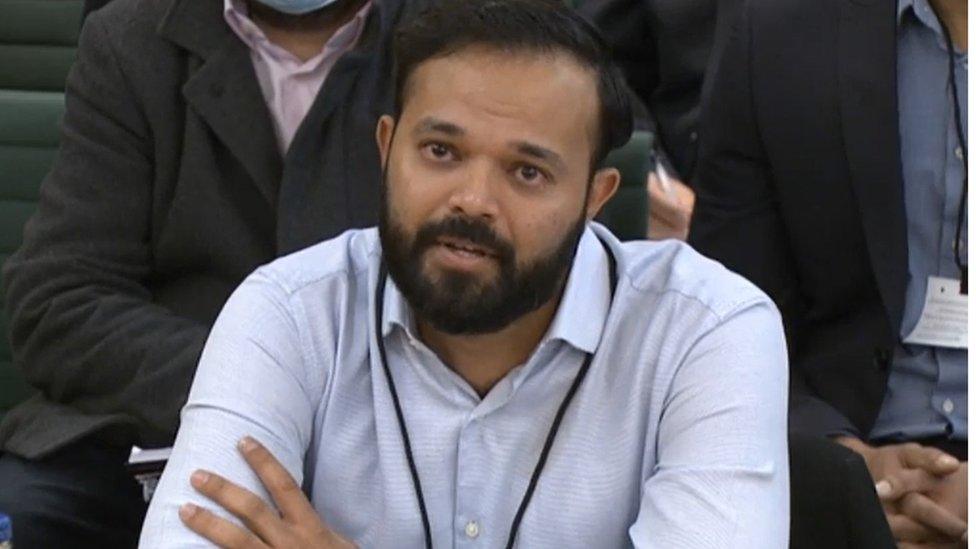
Rafiq said to MPs that he wanted to be a "voice for the voiceless" and that he was "not going to let this go, no matter how much damage it causes me".
He said racist language, including terms aimed at his and others of Pakistani heritage, was used "constantly" and "never stamped out" during his time at Yorkshire.
He dismissed claims of "banter" and said the terms used were racist.
The Digital Culture, Media and Sport (DCMS) Select Committee.
It's their job to make sure public bodies, like sports clubs, are operating properly and fairly and are not breaking any rules.
They can investigate any behaviour or practises they believe to be wrong.
He added that the use of such language was so common it "became the norm" and people at the club "didn't think it was wrong."
When asked by Damian Green MP if he thought cricket was institutionally racist, Rafiq replied: "Yes, I do."
'It's a problem up and down the country'

When asked if he felt the racism problem was "replicated" at other cricket counties, Rafiq said: "It's a problem up and down the country."
Former Yorkshire academy players Irfan Amjad and Tabassum Bhatti have alleged they received racist abuse while at the club.
At Essex cricket club, former players Zoheb Sharif and Maurice Chambers have also both alleged they suffered racist abuse.
Rafiq claimed that British Asian representation in professional cricket since 2010 had dropped nearly 40% and that England have missed out on "a lot of talent" because Asian and black cricketers have been subjected to racism.
He added that the hoped by speaking out there will be "massive change in five years' time".
"All I wanted was an acceptance, an apology, an understanding, and let's try to work together to ensure it never happens again," he said.
'Painful day for cricket'
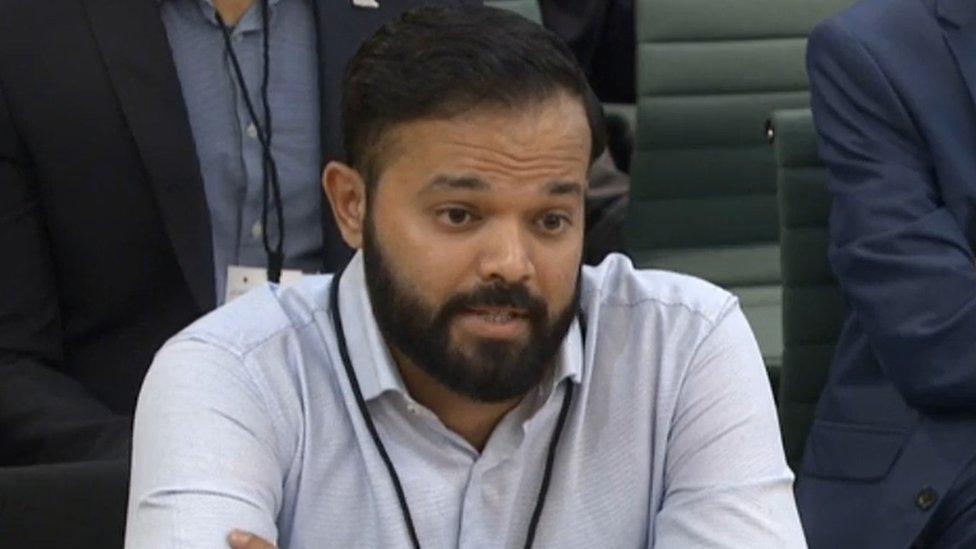
BBC sports editor Dan Roan says Azeem's evidence was a particularly painful day for cricket and that he can't "recall anything quite like it covering sport".
He said there is a feeling that this could prove a crossroads for the people who run the game.
Yorkshire's former chairman Roger Hutton spoke to the committee after Azeem, followed by representatives from the England and Wales Cricket Board (ECB), including chief executive Tom Harrison.
Mr Hutton offered his "profound apologies" to Rafiq, and said Yorkshire's director of cricket Martyn Moxon and former chief executive Mark Arthur "failed to accept the gravity of the situation".
New Yorkshire chairman Lord Patel - who was appointed after the board member resigned - said it was an "incredibly difficult day" for all at the club and that Rafiq's testimony was "harrowing and upsetting".
He added: "There is no quick fix to the clear problems which have been identified, and the issues are complex, not least the charge of institutional racism which must be addressed head on."
- Published17 June 2020
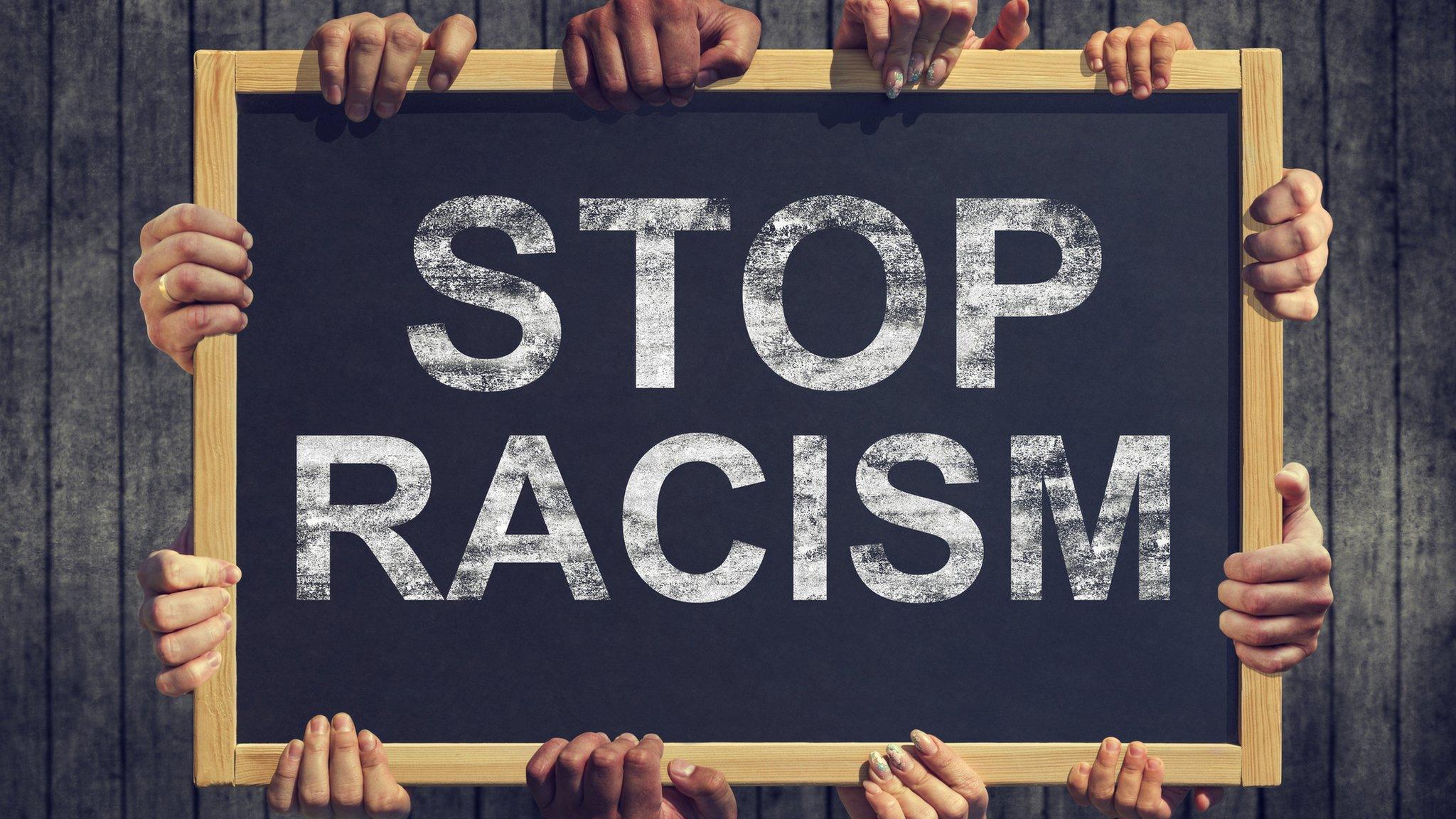
- Published6 November 2021

- Published3 November 2021

